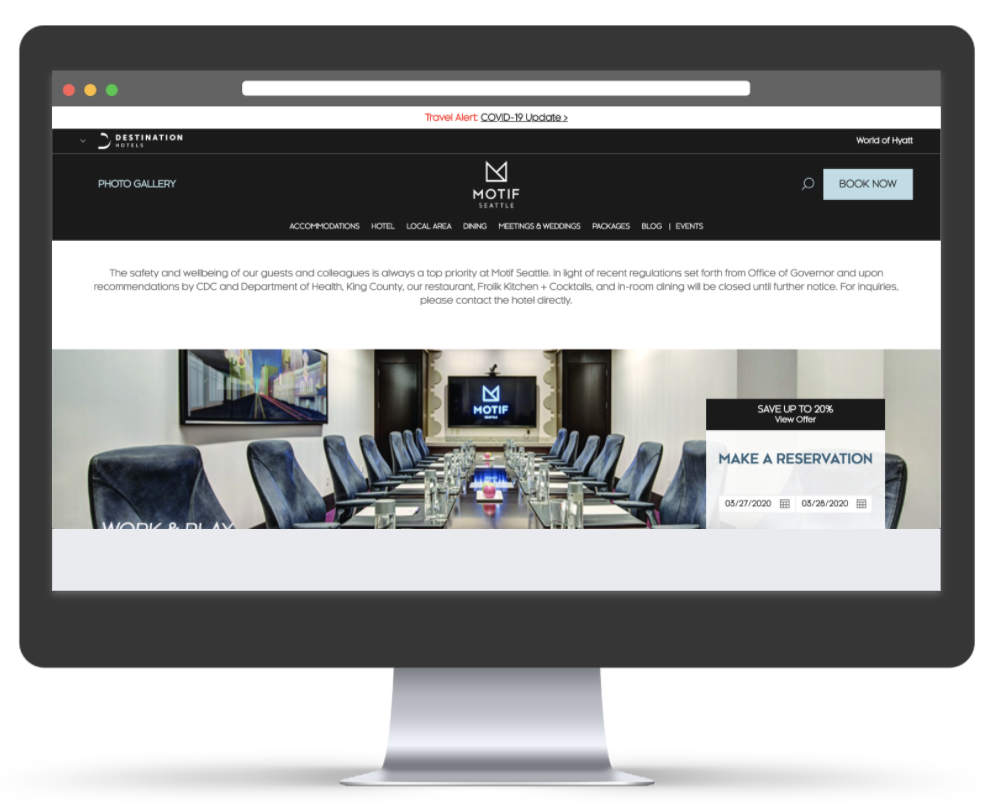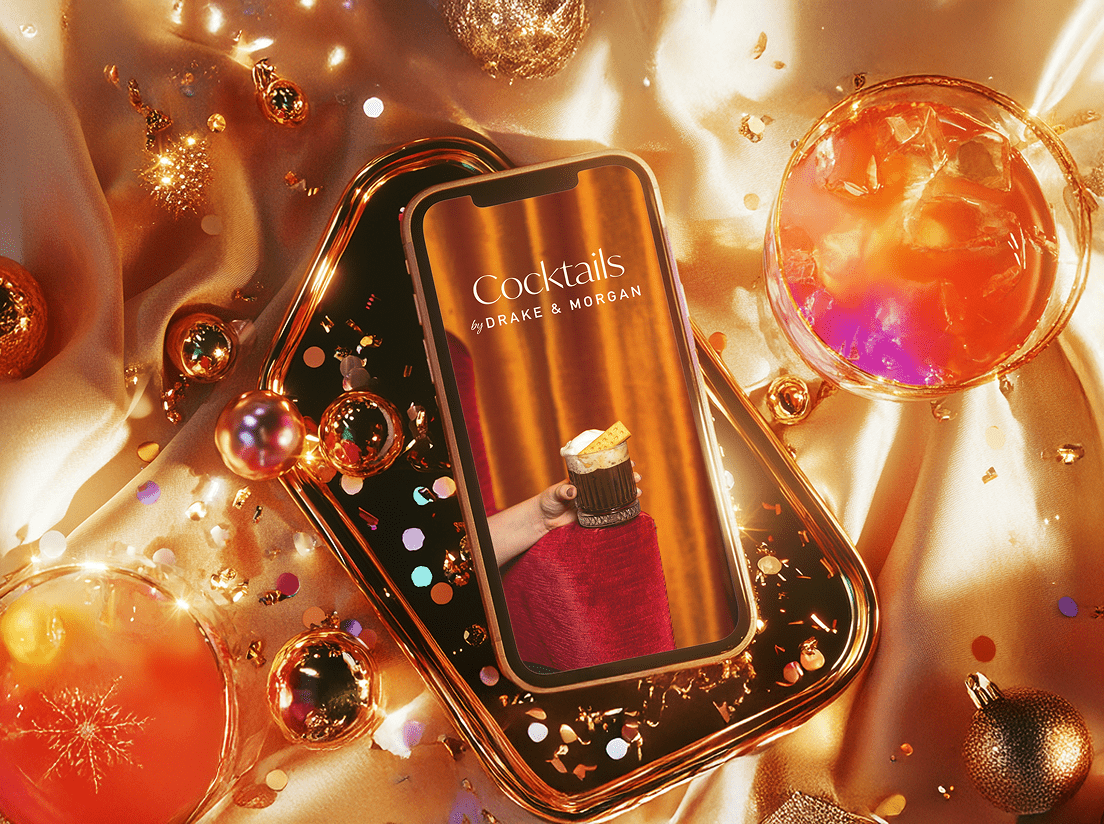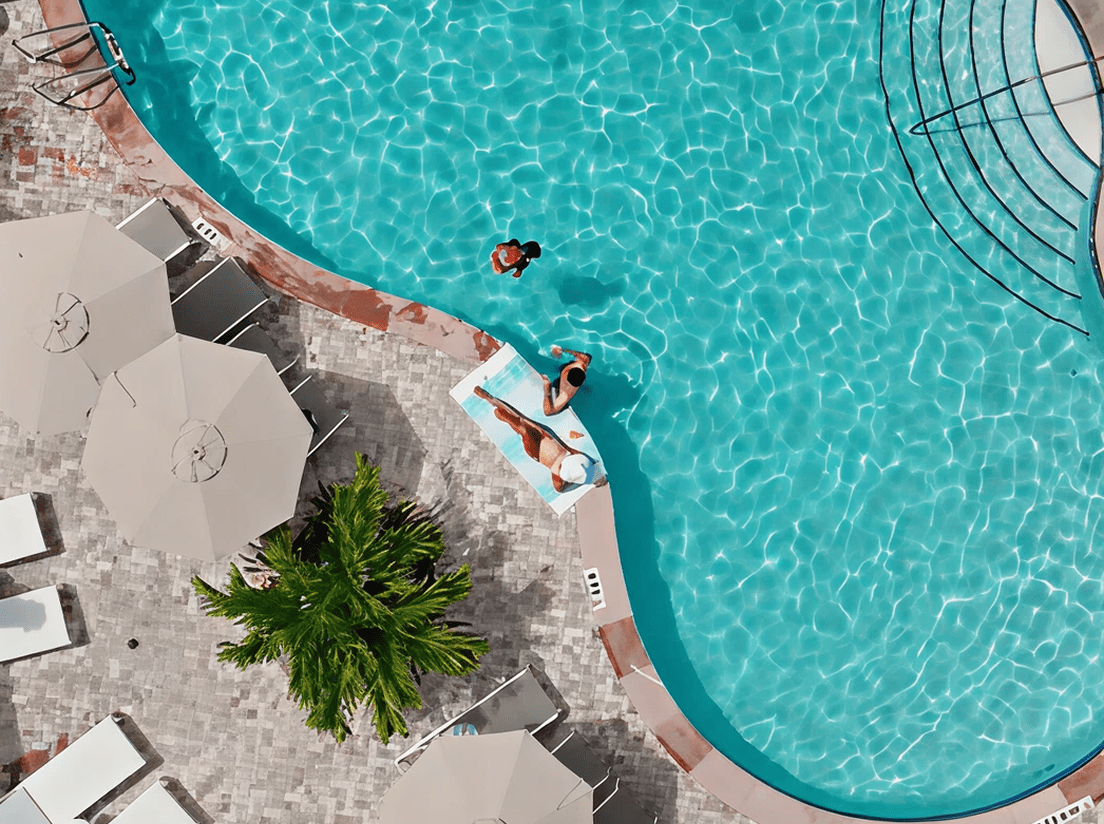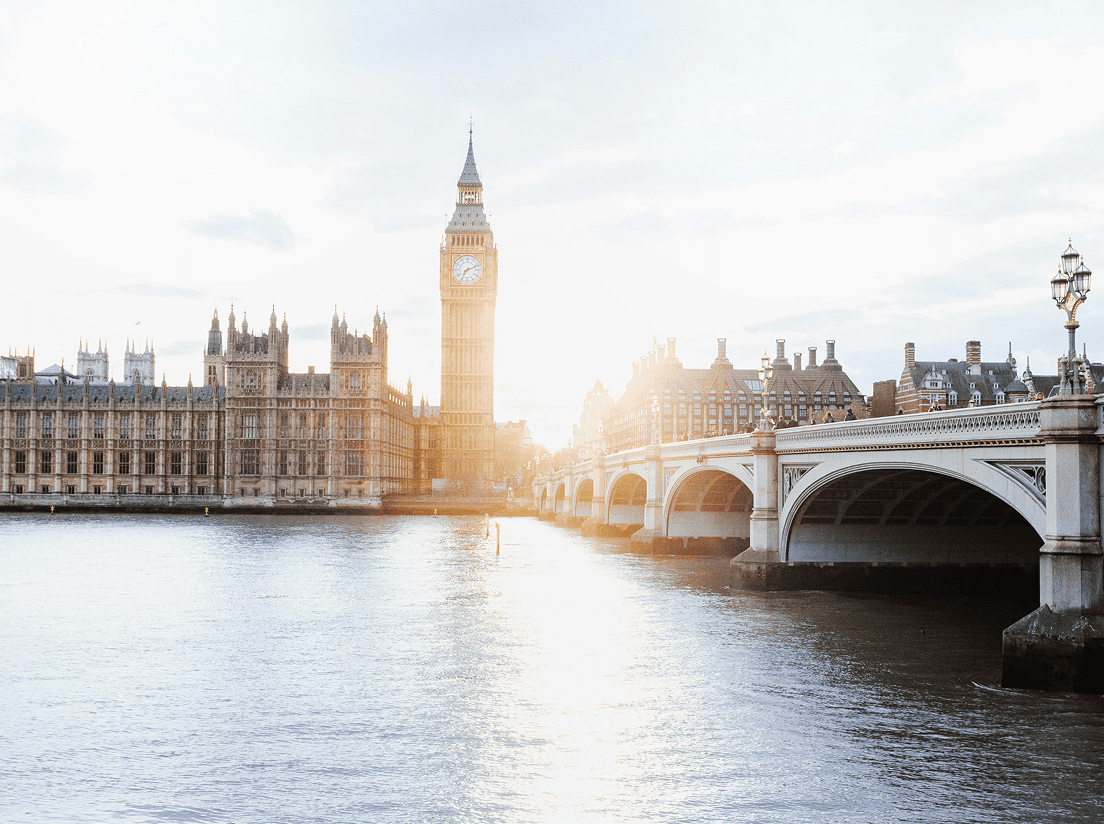
Since the appearance of COVID-19 at the end of 2019, messaging is just one of the many marketing tactics that has drastically changed. The COVID-19 digital world is different than it was before, which means your messaging needs to adapt. Though many hotels are hesitant to enter this new landscape, developing and following a messaging strategy is a safe way to enter the conversation.Instead of going quiet, consider how you can craft your messages to meet the needs your target audience now has because of the outbreak. When it comes to hotels, that may mean additional information surrounding cancellations. But it might also mean messaging that provides a respite from weeks of social distancing without a known end in sight.
Here’s how Screen Pilot is approaching messaging in all channels.
Consistent messaging is key.
- Audit your ads to ensure messaging is consistent across ALL channels.
- Check email, paid search, social ads, organic social, website content, banners, video, etc.
Ensure there is COVID-19 messaging on the landing page you are directing users to.
- Consider adding a banner to the top of your website that can link to the COVID-19 policies and protocols you’ve put in place.
- Guests looking to change their reservation will have quick access this way, but it will also reassure guests interested in booking that you have their health and safety in mind.
Call out flexible cancellation/reservations policies if your hotel or resort is still accepting reservations.
- Consumers expect this for reservations they make during COVID-19, so make it clear what your hotel or resort has to offer.
- Clearly communicating these flexible policies can also increase consumer confidence in your brand if they’re considering booking a stay for later in the year.
If parts of your property are temporarily closed, ensure you are only promoting open lines of business at the hotel or resort.
- If you decide to promote lines of business that are currently closed, tailor your messaging and targeting to go after a longer booking window.
If your property is temporarily closed, be clear about not just the dates of your closure, but also when you’re accepting reservations again.
- You may not need to call this out in your ads specifically, but it should be apparent on the website.

Screen Pilot Tips for Crafting Ad Copy
Avoid sounding sales-y and promoting “Limited Time Deals; Book Now; Get Away Today.”
- This could come off as tone-deaf as long as the world of travel is up in the air.
- It may even be pushing the bounds of legality if your destination has a stay-at-home order in place (our home base in Denver does!).
Avoid present-tense verbiage about travel and focus more on wanderlust for future travels (in both imagery and copy).
- Let images speak for themselves.
- Keep copy along the lines of “When You’re Ready to Travel”, “We Look Forward to Welcoming You”, etc.
- When in doubt, keep messaging clean and simple.
Avoid insensitive messaging.
- While you don’t need to address COVID-19 in every single ad, it’s important to acknowledge nothing is as it was a month ago.
Speak to your drive market whenever possible.
- That is the audience most likely to travel to your resort first (Staycation, Right in your own backyard, etc.)
Some Additional Tips for Search and Google My Business:
Continue to use official site verbiage in search ad copy where appropriate.
- This helps our ads stand out on the search engine results page.
- Messages like these are also recommended for brand campaigns due to driving higher CTR/conversions.
If your property is closed, update your Google My Business listing accordingly.
- Consider listing your hotel or resort as “Temporarily Closed.”
- You can also add posts to your listing with closure information.
Did you enjoy the read?
Get original hospitality industry insights delivered to your inbox. Sign up to receive Screen Pilot’s #TrendingNow Newsletter.






